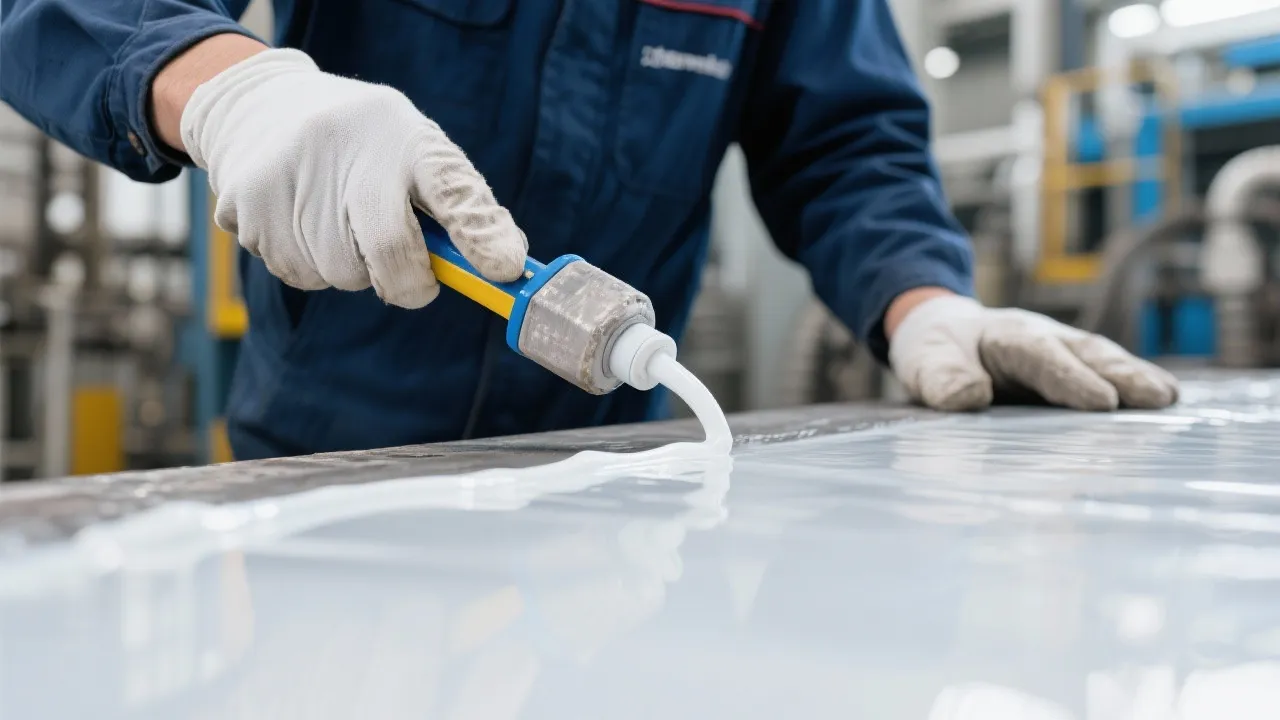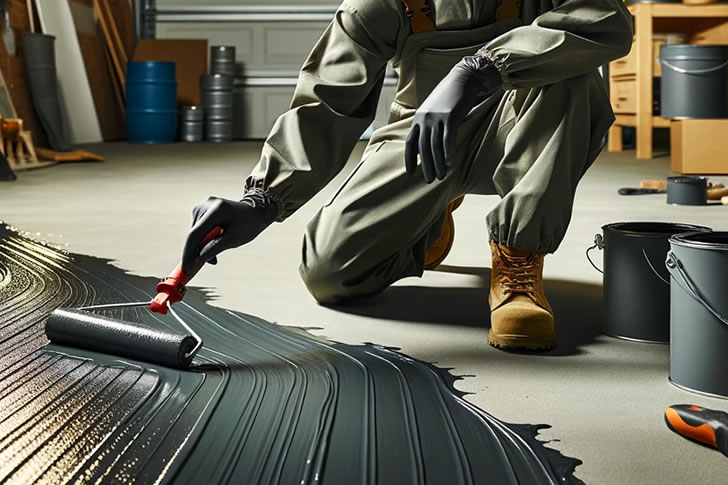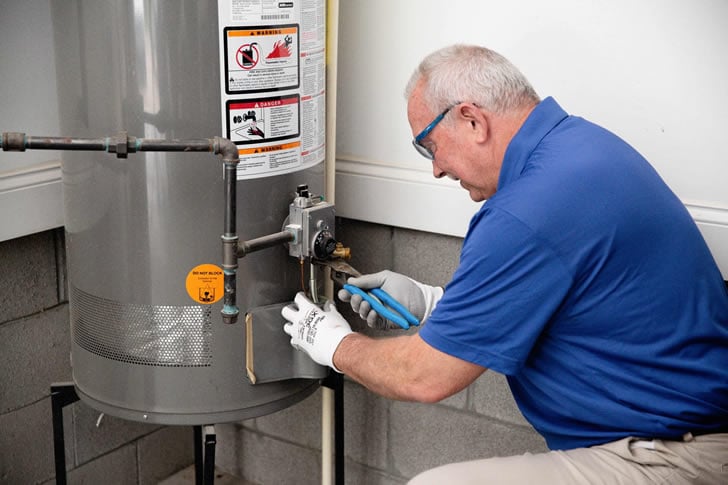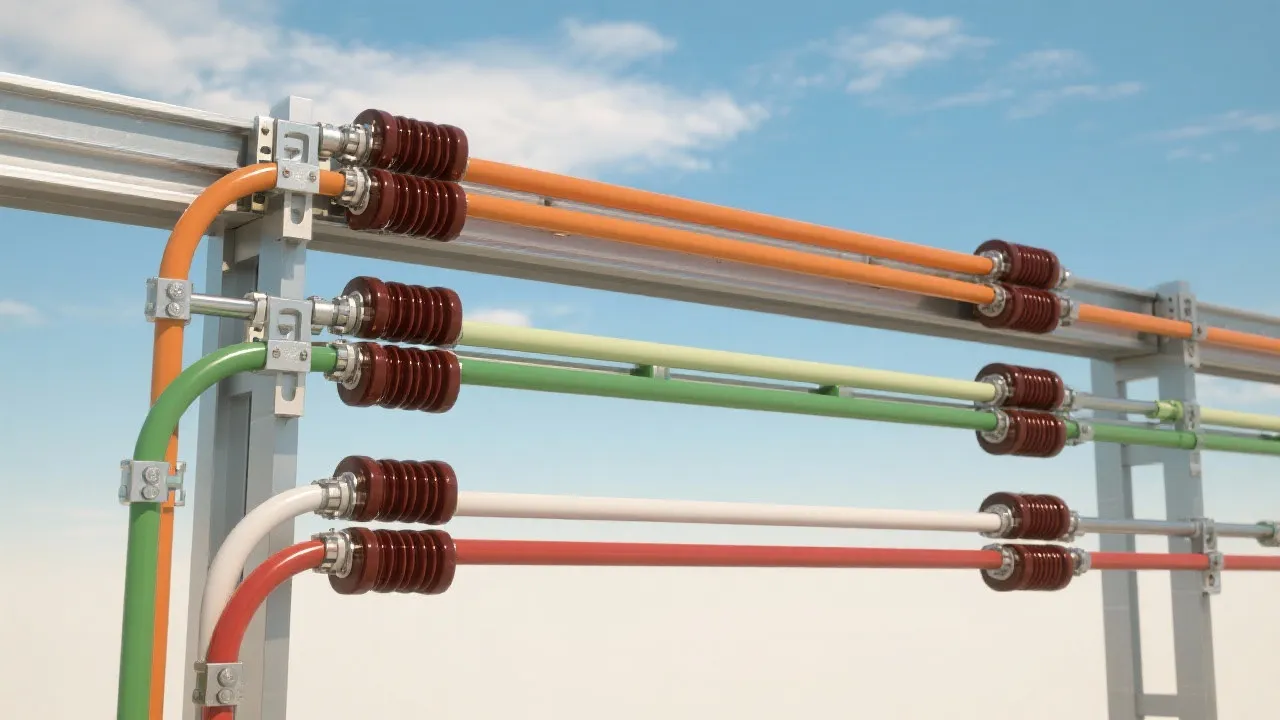Understanding Chemetall Sealants Technology
This guide delves into the significance of Chemetall Sealants in modern industrial applications. Chemetall, renowned for its advanced surface treatment technologies, offers sealants that deliver enhanced protection and durability. This article explores the technical specifications, advantages, and practical applications of Chemetall Sealants, providing insights for industry professionals seeking dependable solutions.

Introduction to Chemetall Sealants
Chemetall, a leading company known for its specialized surface treatment technologies, offers a range of sealants that play a critical role in various industrial applications. Chemetall Sealants are designed to enhance the performance and longevity of materials by providing superior sealing properties. These products are integral in processes where protection against environmental elements and physical stresses is non-negotiable. The sealants are not only a product but a solution that integrates modern technology and research to optimize material performance across diverse sectors. Their efficacy lies in their ability to respond to challenging environmental conditions, ensuring longevity and reliability.
Significance in Industry
In industries ranging from aerospace to automotive, the demand for reliable and durable sealants is paramount. Chemetall Sealants stand out due to their innovative chemical composition, which ensures robust adhesion and resilience. Their significance is underscored by their application in environments where fluctuating temperatures, exposure to chemicals, and mechanical stresses are common. For instance, in the aerospace sector, every component must withstand the rigors of high-altitude conditions, where changes in temperature and atmospheric pressure are extreme. Similarly, in the automotive industry, components are exposed to solvents, oils, and weather variations. Therefore, using Chemetall Sealants contributes significantly to both safety and performance. With a focus on quality and adaptation to multiple environmental challenges, these sealants enhance the structural integrity and safety of the applications they are used in.
Technical Overview
Chemetall Sealants are formulated using advanced polymer technology that allows for a customizable range of properties tailored to specific industrial needs. These sealants offer exceptional elasticity, which helps accommodate thermal expansion and contraction in materials. Additionally, they are resistant to ultraviolet radiation and oxidation, ensuring good performance. The chemistry behind these sealants includes cross-linking mechanisms that enhance stability and performance over time. This molecular configuration not only ensures a superior bond but also allows the material to flex without breaking, making them particularly useful in high-stress applications. The formulations are adaptable, allowing for the development of specific sealants that meet varying performance criteria, such as temperature resistance, hardness, or flexibility, thus addressing the unique requirements of different industries.
Applications of Chemetall Sealants
Leveraged across various sectors, Chemetall Sealants find applications in:
- Aerospace: Preventing corrosion and water ingress in aircraft fuselages and wings, ensuring safety and compliance with rigorous industry standards. The use of these sealants not only contributes to the aircraft's structural integrity but also aids in reducing maintenance intervals, which is critical in the aerospace industry where every hour of operation counts towards overall efficiency.
- Automotive: Sealing components against moisture and dust, while also providing sound dampening effects. In this sector, Chemetall Sealants contribute to the reduction of noise and vibration levels within vehicles, enhancing comfort and driving experience for passengers. Moreover, the longevity provided by these sealants helps manufacturers comply with stringent durability requirements, which are increasingly important in modern automotive development.
- Construction: Ensuring weatherproofing in building facades and expansion joints, protecting structures from water ingress and environmental damage. Chemetall Sealants offer aesthetic as well as functional qualities, allowing for clean, visually appealing finishes that do not compromise on performance. In urban environments where buildings are subjected to harsh weather conditions, these sealants play a crucial role in prolonging the life of structures and minimizing renovation costs.
- Electronics: Offering protection against moisture ingress and ensuring reliability of electrical connections in various devices. In this fast-evolving sector, where miniaturization and compact designs are common, the use of Chemetall Sealants ensures that electronic assemblies can withstand thermal cycling and environmental stress without failure.
- Marine: Providing protection against saltwater and harsh marine environments, which is essential for prolonging the life of boats and offshore structures. Given the corrosive nature of marine environments, Chemetall Sealants are specifically formulated to withstand such conditions, ensuring that critical components remain protected and operational.
Features and Benefits
| Feature | Benefit |
|---|---|
| High Adhesion | Ensures a strong bond between surfaces, reducing the risk of seal failure and enhancing overall durability and performance in various applications. |
| Elastic Flexibility | Absorbs structural movement, adapting to stresses and strains to prevent cracks and maintain seal integrity over time. This flexibility is especially beneficial for applications exposed to vibration or thermal cycling. |
| UV Resistance | Prolongs seal life under prolonged sunlight exposure, reducing maintenance costs and ensuring lasting performance in outdoor applications. This feature is particularly advantageous for construction and automotive applications. |
| Chemical Resistance | Protects against aggressive environments, ensuring durability and functionality even when exposed to harsh chemicals, oils, and other substances. This makes them suitable for automotive, industrial, and aerospace applications where chemical exposure is a concern. |
| Temperature Tolerance | Maintains performance across a broad range of temperatures, making them suitable for use in environments that experience dramatic temperature variations. This is crucial for applications within the aerospace and automotive industries. |
| Fast Curing Time | Allows for quicker project completion while reducing downtime, which is essential in industries where time is of the essence. Quick application and cure times can help streamline production lines and reduce labor costs. |
Chemetall Sealants: A Comparative Guide
Understanding the differences in sealants is crucial for selecting the right product for a specific application. Each type of sealant has unique properties that make it suitable for particular conditions. Recognizing these differences can greatly impact the effectiveness and durability of the sealant used:
| Sealant Type | Ideal Conditions | Performance |
|---|---|---|
| Polyurethane-based | Construction joints, automotive applications | High flexibility, moderate UV resistance, suitable for dynamic loads and movements. |
| Silicone-based | Glazing, exterior surfaces, areas requiring water tightness | Excellent UV and water resistance, perfect for outdoor applications. Also provides good bonding capabilities for substrates like glass and metal. |
| Hybrid Sealants | Varied environmental conditions where a balance of properties is required | Balanced performance across factors such as flexibility, adhesion, and UV resistance, making them versatile for many applications. |
| Epoxy-based | High-strength applications requiring structural integrity | Excellent bonding and chemical resistance, ideal for use in harsh environments, commonly used in industrial applications. |
| Acrylic Sealants | Interior applications, non-structural sealing | Good paintability and flexibility, suitable for applications where aesthetics are important. |
Factors to Consider When Choosing Chemetall Sealants
When selecting a sealant for a particular application, several critical factors should guide the decision-making process:
- Environmental Conditions: Consider the specific temperatures, chemical exposures, and humidity levels the sealant will encounter. Each industry has its unique environmental challenges that can influence sealant performance.
- Substrate Compatibility: The materials being joined or sealed can affect adhesion properties. Ensure that the chosen sealant is compatible with the substrates to guarantee effective bonding.
- Mechanical Stress: Analyze the type of movement and stress the joint will undergo. High-stress environments require sealants that can withstand dynamic loads without compromising integrity.
- Curing Requirements: Evaluate the time available for application and curing. Some projects may necessitate fast-curing products to minimize downtime.
- Cost and Longevity: While initial costs are important, it’s vital to consider the sealant's long-term performance and durability, as higher-priced sealants may ultimately be more cost-effective due to lower maintenance and replacement needs.
- Regulatory Compliance: In many industries, compliance with environmental and safety regulations is mandatory. Ensure that the selected sealant meets all local guidelines to avoid potential legal issues.
FAQs About Chemetall Sealants
Q: What industries benefit the very most from Chemetall Sealants?
A: Industries such as aerospace, automotive, electronics, marine, and construction gain significant advantages due to the sealants' superior qualities in adhesion, flexibility, and resistance to environmental factors.
Q: Are these sealants environmentally friendly?
A: Yes, Chemetall is committed to sustainability, and many of their products are designed to minimize environmental impact, including low-VOC options that meet international standards.
Q: How do Chemetall Sealants improve operational efficiency?
A: By providing robust sealing solutions, they reduce the risk of material damage and extend maintenance intervals, thereby enhancing overall efficiency in production and operations. This leads to reduced downtime and savings on labor costs associated with repairs.
Q: Can Chemetall Sealants be used indoors and outdoors?
A: Yes, many Chemetall Sealants are formulated for both indoor and outdoor use, making them versatile and suitable for various applications in different environments.
Q: How are Chemetall Sealants applied?
A: Chemetall Sealants can be applied using various methods, including caulking guns, brushes, or spray equipment, depending on the product and application requirements. Always refer to the specific product guidelines for best practices.
Q: Is training available for using Chemetall Sealants?
A: Chemetall offers training and resources for their products, ensuring users are fully knowledgeable about application methods, safety precautions, and performance characteristics.
Conclusion
Chemetall Sealants exemplify the blend of advanced chemical engineering and practical application. Industry professionals seeking reliable sealing solutions will find Chemetall a valuable partner in achieving enhanced efficiency and longevity in their applications. The continuous innovation and commitment to quality make Chemetall a top choice for addressing the comprehensive needs of modern industries. With a diverse portfolio and an unwavering focus on performance, Chemetall stands at the forefront of sealant technology, adapting its solutions to meet the ever-evolving demands of various sectors. As industries grow and require increasingly sophisticated materials, Chemetall Sealants will undoubtedly play a pivotal role in shaping the future of industrial sealing solutions, ensuring safety, efficiency, and sustainability in every application.










